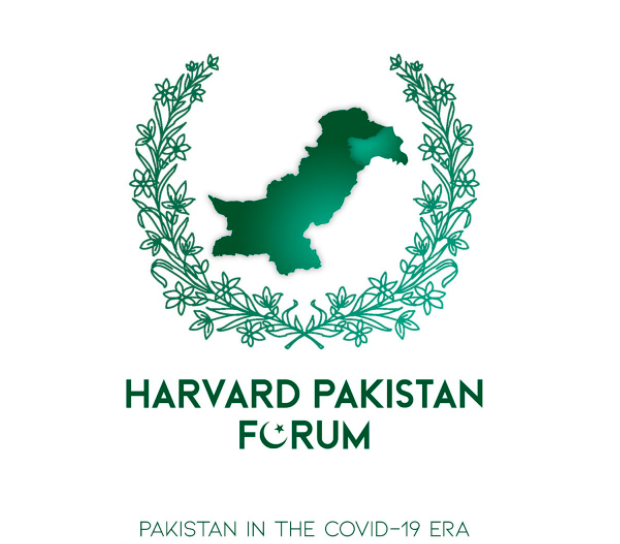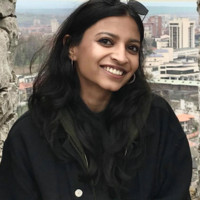The Young Pakistanis Changing our World
- Land of the Pure

- Dec 20, 2020
- 8 min read
Updated: Dec 29, 2020
By Myra Ahmed
Of Pakistan's approximately 220 million people, 64% are aged below 30. Pakistan has one of the world's youngest populations, giving it potential like no other. A young population is not only likely to bring about what is known as a 'demographic boom', but also stimulate development through innovation and creativity. In recent times, we have seen a number of young Pakistanis change the world with their passion and drive, whether that is Malala Yousafzai with her unrelenting work for education, or Arfa Karim, with her talent and skill in computer science. To honour and empower what is a population of immense resilience and potential, LOTP has interviewed five amazing young Pakistanis working to change the country they love so dearly, for the better. As a youth-run organisation, it is with utmost pride that we can say that these five individuals have not only inspired us to continue our work to empower Pakistan and Pakistanis across the world, but have also showed us that Pakistan is in very, very good hands, and that as a community, we are now taking matters into our own control.
Make sure to support all their incredible initiatives!
Faiz Ahmed and Macro Pakistani
Faiz Ahmed is the founder and chief editor of Macro Pakistani, a data-driven research platform that aims to ‘slow down the breaking news’ and perpetuate already high civic and government engagement in Pakistan. A student at Harvard Business School, Faiz is currently pursuing an MBA, having completed his undergraduate studies in Economics at LUMS. At the onset of the COVID-19 pandemic, Faiz's unrelenting passion for Economics, coupled with a great deal of time, lead to his extensive exploration of Pakistan's wide-ranging economic data, and eventually identifying a lack of understanding and engagement, Faiz launched Macro Pakistani to try and bridge the gap between Pakistan's population, and the data we use to make policies that greatly impact said population. When asked about his passion for Economics, Faiz highlighted that studying a subject so deeply rooted in the real world allows you to gain a "wider understanding of the things happening around you", and therefore, draw conclusions and form actionable plans that can take us forward. Having interned at the State Bank of Pakistan, and contributing to the development of the highly-successful Roshan Digital Account, Faiz has highlighted that to him, patriotism is finding "one's niche in the country", and supporting development to every extent possible within one's own capacity. Macro Pakistani has seen immense support from the wider population, particularly due to its 'bite-sized, digestible pieces' approach, which allows readers to understand and apply the concepts discussed to their daily lives. As a data-driven research platform, Macro Pakistani has a significant focus on using numbers to substantiate the headlines we see quickly passing by on our TV screens. When we asked Faiz what he thought made numbers an important tool to Pakistan's development, he told us that they allow us to have "fundamental, fact-based conversations, set ambitions, create actionable plans for progress, and identify successes and failures within Pakistan on a regional level". Numbers, therefore, strip headlines of their sensationalism, allowing us to see the real picture, and its real impacts. A particularly significant part of our conversation with Faiz was rooted in the idea of representation, and how, as a Pakistani student at Harvard, Faiz was leveraging the opportunities and resources he had firstly, in supporting Pakistanis working to get to these top institutions, and secondly, connecting those already there more deeply with Pakistan. Macro Pakistani and its various articles, he says, become stimulus for conversation, allowing us to have educated and productive discussions on issues in the country that need to be immediately addressed. Conversations in Pakistan, unfortunately, have often been plagued with biases of various capacities, and initiatives like Macro Pakistani will allow us to prioritise the country, over all other things, as we move forward.
Follow Macro Pakistani!
What is Pakistan to Faiz?
"For Faiz, Pakistan is a country with immense potential; it's the land of opportunity that needs urgent attention to social issues, in order to tackle its economic issues."
Syeda Maah-Noor Ali and Afsana
Maah-Noor Ali, founder and executive director at Afsana - Our Stories, and Oxford University graduate, was born and raised in England, before moving to Pakistan during her high school years, and later returning to the UK for university. As an English Language and Literature student, Maah-Noor has a strong belief in the power of words and writing to bring about social change and support developing communities. A childhood poet, Maah-Noor's works have been featured on multiple British, Pakistani, and international publications, and her love for Pakistan shines through them. At Oxford, Maah-Noor worked with many of her fellow peers to host programs and workshops that sought to encourage Pakistani students to apply to universities like Oxford, and help increase Pakistani representation at these top institutions. Maah-Noor is currently working towards a Master's degree in Law, which she says is another subject she is incredibly passionate about. As a British-Pakistani, Maah-Noor identifies greatly with her Pakistani culture, and through her platform, Afsana - Our Stories, works to highlight the stories and journeys of people in South Asia. The social justice project and magazine publishes stories that South Asians from all across the world submit, as well as reaching out to individuals in Pakistan through their on-ground team and learning more about their journeys, lifestyles and memories. In particular, Afsana seeks to highlight the working class of Pakistan, who are essentially "a majority class with a minority voice", and through articles, empower small businesses and daily wagers for the fundamental role they play in our society. Linking closely to her work at Afsana, Maah-Noor's exploration of literature at Oxford focused largely on South Asian writers, and in particular, whether writers like Mohsin Hamid and Kamila Shamsie, had the right to represent Pakistan in the way that they did. Her extensive research and exploration opened her eyes to a variety of perspectives towards Pakistani literature, and in particular, she discovered a great love for Urdu. She says that it is very difficult, if not impossible, to translate Urdu, with all of its impact, to another language effectively, and she says that it is one of the many things that make her feel at home in Pakistan.
What is Pakistan to Maah-Noor?
"Pakistan means a lot to me. When you go out on the street in Pakistan, everyone is you. There is no sense of standing out, or having your guard up. We're all inherently made of the same stuff."
Follow Afsana!
Asmer Asrar Safi
A sophomore at Harvard, Asmer's list of work is endless. Growing up between Karachi and Lahore, Asmer has a huge passion for social work, and is currently pursuing a Bachelor's degree in Government and Economics at the prestigious Harvard University. His time in Karachi, witnessing what was the downward spiral of an otherwise immensely vibrant city, inspired him to find ways to support development in Pakistan. His work with Next Generation Pakistan, one of Pakistan's largest youth-led NGOs, was one of the many ways Asmer undertook what he describes as a "need to give back". The organisation's various programs, like the 'Pehchaan Project', which sought to integrate Pakistan's transgender community into the wider society, allowed him to connect with marginalised communities on a very personal level, and gave him the ability to support them in a very immersive way.
Studying at Harvard, Asmer says, comes with a number of opportunities and resources that "automate the process of you feeling strongly about wanting to give back in some form of the other". In this capacity, Asmer, along with his friends Sannan Sharif Dhillon and Rana Raffey, founded the Coalition of Pakistani Students in the USA, which is a platform for Pakistani students studying at universities in the USA to connect and work collectively to support their peers back home, and in turn, build a sense of camaraderie within the young Pakistani population. Their 'Rahbar' initiative created a mentee-mentor system between students at top colleges in the US with underprivileged students in Pakistan, supporting them through the college application process. He feels that "it would be a huge disservice to the kind of opportunities Pakistan gave me which empowered me to be able to go to Harvard if I weren't to pay this back, to whatever capacity possible". To further this, Asmer co-chaired the 2020 Harvard Pakistan Forum, an annual conference that had not been held since 2017, which brings together academics, policymakers and subject experts to discuss pertinent issues Pakistan is facing. This forum, more than anything, is a platform for constructive discourse on issues that have acted as obstacles to Pakistan's development, and not only allows us to hold government officials accountable, but also provide them with proper policy recommendations and present the views of the public. Over his next few years at Harvard, Asmer will be working on his project, Naqsha Nigar, which won the Lakshmi Mittal South Asia Institute 2020 Seed For Change Grant. This project seeks to facilitate and improve tourism in Lahore, simultaneously improving access to certain sites that were representative of Lahore's pluralist, secular heritage, but are no longer preserved effectively.
What is Pakistan to Asmer?
“Being able to go abroad has made me come even closer and see Pakistan from a bird’s eye perspective, a very third-person point of view, and it has brought Pakistan to the core of my identity. Pakistan is heaps of potential that can be unlocked very easily."
Shehrbano Naqvi
Shehrbano Naqvi, popularly known as Banoqvi, is a writer working to counter mental health stigma in Pakistan through her works. Having completed a degree in English Literature at the John Cabot University in Rome, Shehrbano has a deep rooted passion for writing and using words as a means of change. Shehrbano also performed at the 2020 Karachi Literature Festival, speaking amongst an array of incredibly talented Pakistani writers, and presenting the poetry she had kept completely private for a very long time. She says that despite being a writer throughout her childhood, she never felt comfortable putting her work out into the public, and it was the loss of her brother to suicide in 2018 that played a large role in her launching Banoqvi. She says that while to her, the poetry she was writing and presenting was simply a part of her soul and her journey, to others, this poetry either meant something completely different and incredibly personal, or it became a stimulus for difficult conversations on mental health, particularly in the context of Pakistan. Her brother Emad, who had an unrelenting passion for football, especially empowering communities in Karachi's famous Lyari region, acts as an inspiration to what is today the Coach Emad Foundation. Shehrbano's work with the academy focuses on uplifting young girls, who, despite having incredible talent for football, have been unable to join practices simply due to their gender. She says that to these girls, her freedom and ability to do as she wishes acts as a motivation to work harder and do better, and despite not being involved significantly in the early stages of setting up the foundation, she eventually realised just how much she was needed there.
More on Shehrbano, and her poetry, will be featured in our upcoming article on mental health in Pakistan -- stay tuned!
Follow Banoqvi!
Mahnoor Farishta and Khair PK
Khair PK is a new, up and coming health-tech organisation working to facilitate health literacy in Pakistan, and incorporate the most marginalised rural populations in Pakistan within the national health infrastructure. Founded by Mahnoor Farishta, a SOAS graduate in Politics and Economics, Khair PK is leveraging the growing power of technology, particularly mobile phone networks, to try and bridge the gap between healthcare provision in Pakistan, and the people of Pakistan. Mahnoor has previously worked with DoctHERS, another healthcare-based organisation, that focuses on connecting women to try and improve their position in society through education and technology. During the COVID-19 pandemic, Mahnoor also undertook a Corona Ration Project, through which she was able to raise 20 million PKR in six months, and distributed over 6000 ration bags to daily wagers who had been disproportionately impacted by lockdown measures. More on Khair PK will be available following their launch in January 2021!
Follow Khair!


























Comments